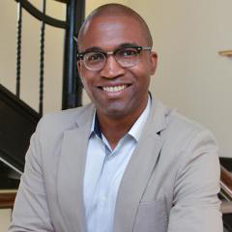About the Network
The Dignity + Debt Network is a group of experts across a dozen countries developing meaningful, data-rich analyses and innovative financial services for low and moderate income households. Rather than using stories and texts as anecdotes, the network combines both richly-detailed case studies and experiments and computational analysis of large bodies of texts to assess the meanings and values that affect financial capability and well-being. This combination enables questions, such as how do different meanings of dignity and respect affect which debts consumers are likely to repay first, and why? How do meaningful values operate in face-to-face versus virtual encounters with financial service providers, and how do different types of narratives (and the values they carry) affect how consumers achieve financial well-being? Finally, Dignity + Debt Network members will collaborate to redesign existing financial services and to test new dignity-affirming financial products.

Incubate research on dignity, respect, and fairness
Our first objective is to ask whether a business case be made for using respect to improve customer experience and to reduce the cost of loan defaults? Does the inclusion of respect decrease the cost of debt collection while increasing consumer financial well-being? Our approach brings together computational social scientists with qualitative researchers and practitioners to analyze how consumers think about what’s fair when confronting fees, fines, and debt collectors, as well as how and why they interpret their encounters with banks and other financial service providers as respectful, disrespectful, affirming, or degrading.

Develop innovative products and services
This second objective is to redesign existing financial services to increase the positive aspects of dignity and respect while also increasing the financial returns of these new designs. Likely partners include Daisy Debt, an online platform to assist consumers whose debts are in collection; Lending Circles, administered by the Mission Asset Fund to help people establish or improve their credit; Oportun, an affordable, short-term loan provider that helps people who do not have credit scores; and FS Card, Inc., a credit card targeting underserved communities. The Network will also work with Financial Sector Deepening-Kenya to identify fruitful partnerships in Kenya and across Africa. The Network can shape design competitions run by the Keller Center at Princeton to meet the needs and privacy concerns of financial service providers. These financial tools and services will resonate with low and moderate income consumers across the globe and promote meaningful inclusion.

Generate public support for debt with dignity
We plan to change the conversation about credit and debt among those measuring financial access and wellness, such as those writing legislation on credit access and debt, and those providing financial services. By developing novel visualizations of dignity and debt along with podcasts of conversations among researchers, journalists, civic and political leaders, and television, radio, and social media personalities, we aim to make the collective wisdom of the Network immediately relevant and usable. The network will develop strategies that point the way to more fruitful relations between finance and society.
Meet the Network
